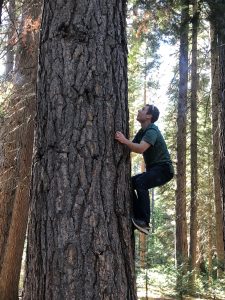
Jack Smith
Jack Smith was a research assistant from 2020 to 2021. His work supported PERC’s publications team, writing original material, compiling data, and editing publications. Jack came to PERC from New York, where Adirondack lakes and broadleaf forests first introduced him to the charm of conservation. In college, Jack became interested in how market-based policies can improve the environment—an interest that culminated in a senior thesis that investigated carbon offset markets. While in college, he also studied under an expert woodturner and fell in love with the traditional craft.
In 2019, Jack graduated from Harvard University with a degree in Environmental Science and Public Policy. After a few months working at a nature center in his hometown, he found PERC and made the long drive west to Bozeman. Today, Jack is thrilled to call Montana home and to work toward a better future for people and wildlife. He spends his spare time skiing, rock climbing, and carving wood.
Hight-resolution photo Action photo
